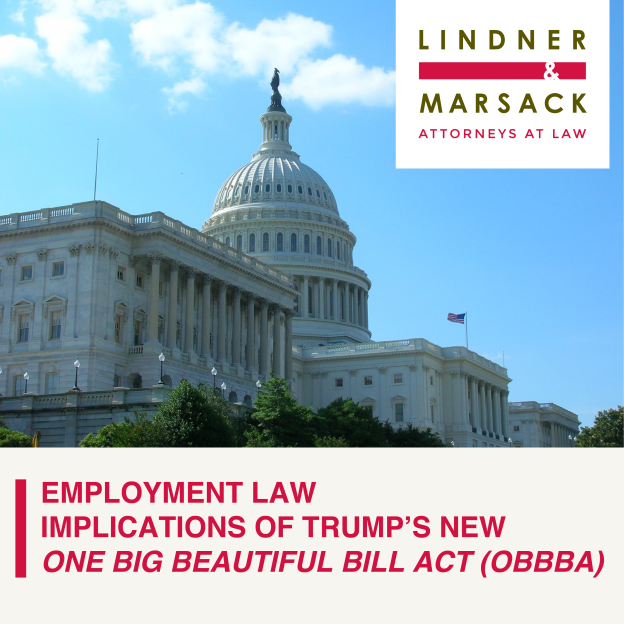By: Luis Padilla
On July 4, 2025, President Trump signed into law a budget and reconciliation package known as the One Big Beautiful Bill Act (OBBBA).
The following are provisions of interest that will have an Employee/Employer impact.
- Family and Medical Leave Credits: the paid family and medical leave credit established under the Tax Cuts and Jobs Act become permanent under the OBBBA. Employers that offer this benefit can offset the costs with credit, except for those benefits mandated or paid for by the State or local government.
- Health Savings Accounts: Beginning in 2026, there will be fewer exclusions for an employee seeking to qualify for an HSA.
- Employee Retention Credits (ERC’s): OBBBA modifies enforcement of COVID related ERC’s. First, it ensures denial of all refunds requested after January 31, 2024, regardless of claim timeliness and in accordance with the laws at the time of filing. The OBBBA also substantially extends the statute of limitations for most employers who claim the ERC.
- Tips and Overtime: The Act temporarily allows for the deduction of up to $25,000 for qualified tips received in an occupation that customarily and regularly receives tips from 2025 through 2028. The Secretary of the Treasury will publish a list of qualifying occupations within 90 days of enactment.
Qualified overtime compensation is defined as overtime pay mandated by the Fair Labor Standards Act (FLSA) that exceeds the employer’s regular rate of pay. A temporary deduction of up to $12,500 for an individual, and $25,000 for joint returns for qualified overtime compensation received in a given tax year which phases out beginning with Modified Adjusted Gross Income (MAGI) over $150,000 ($300,00 for joint returns). Employers would be required to report the total overtime compensation on employee’s W-2 forms. Employees will need to substantiate their deduction. Importantly, while federal income tax on qualifying overtime pay is eliminated, payroll taxes for Social Security and Medicare would still apply.
- Permanent exclusion for Employer provided Student Loan Assistance and Inflation Adjustment: The exclusion allowing employees to exclude up to $5,250 per year from gross income for employer provided student loan repayment becomes permanent. Employers can also exclude these amounts for employment tax purposes.
- Permanent increase to Achieving a Better Life Experience accounts (ABLE) contribution limits: Employed individuals with disabilities may contribute extra funds to their ABLE accounts up to the lesser of their annual earnings or the federal poverty level for a single person household.
If you have questions about this material, please contact Luis Padilla Jr. at lpadilla@lindner-marsack.com, or any other attorney that you have been working with at Lindner & Marsack, S.C.

